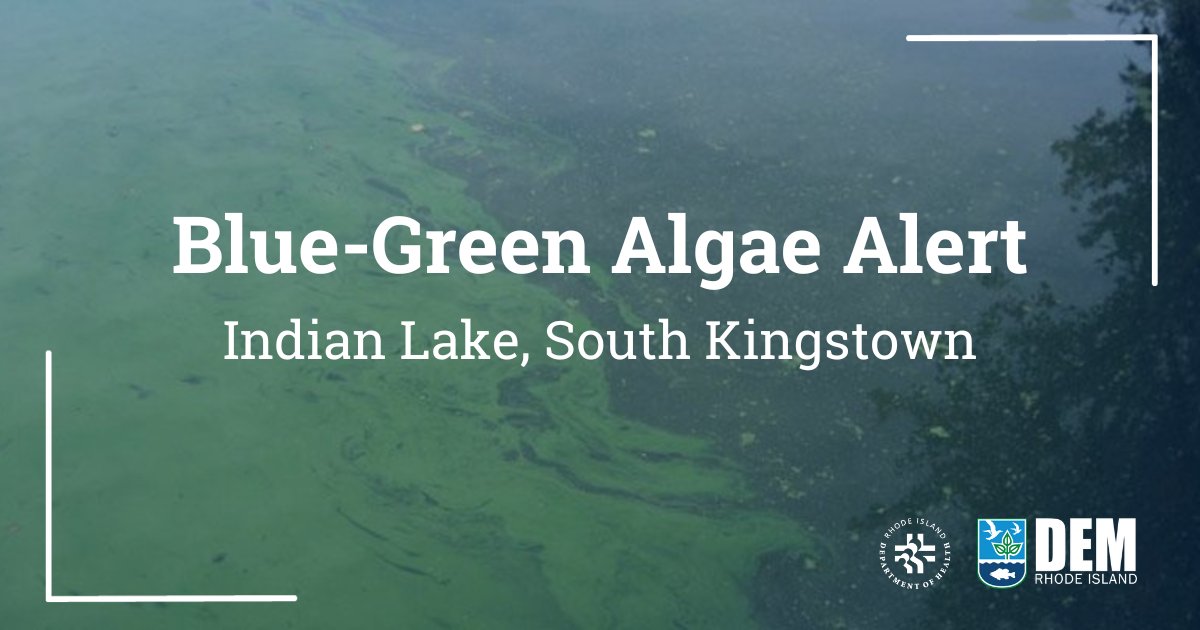Joins Worden Pond as site of toxic pollution
The Rhode Island Department of Health (RIDOH) and the Rhode Island Department of Environmental Management (DEM) are advising people to avoid contact with Indian Lake in South Kingstown due to blue-green algae (or cyanobacteria) blooms in the ponds.
Blue-green algae can produce toxins that can harm humans and animals. Toxins and/or high cell counts have been detected in the lake by the RIDOH State Health Laboratories from water samples collected by the DEM.
All recreation, including swimming, fishing, boating, and kayaking, should be avoided. People should not ingest water or eat fish from the pond. Pets can also be affected by exposure to the algal toxins and thus owners should not allow pets to drink or swim in the water.
People should not rake weeds or
plants out of the waterbody. If you are raking leaves in your lawn, please be
sure to compost responsibility and far from the waterbody. Decomposing leaves
and plant matter can increase nutrients and trigger unwanted algae blooms,
these algae can consume oxygen which causes fish kills. Contact your city or
town to find out the best way to dispose of yard waste.
The advisory will remain in effect until further notice. Skin contact with water containing blue-green algae commonly causes irritation of the skin, nose, eyes, and/or throat.
Common health effects associated with ingesting water containing algal toxins include stomachache, diarrhea, vomiting, and nausea. Rarer health effects include dizziness, headache, fever, liver damage, and nervous system damage. Young children and pets are at a particular risk for health effects associated with algal toxins.
People who have had contact with these ponds and experience those symptoms should contact their healthcare provider. If you come into contact with the water, rinse your skin with clean water as soon as possible and, when you get home, take a shower and wash your clothes.
Similarly, if your pet comes into contact with the water, immediately wash your pet with clean water. Do not let the animal lick algae off its fur. Call a veterinarian if your animal shows any symptoms of blue-green algae poisoning, including loss of energy, loss of appetite, vomiting, diarrhea, or any unexplained sickness that occurs within a day or so after being in contact with water.
People are cautioned that toxins may persist
in the water after the blue-green algae bloom is no longer visible.
It is possible that blue-green algae blooms may be affecting other waterbodies in Rhode Island. People are advised to avoid contact with waterbodies that exhibit bright green coloration in the water or at the water surface and/or dense floating algal mats that form on the water's surface.
The water may look like green paint, thick pea soup, or green cottage
cheese. To report suspected blue-green algae blooms, contact DEM's Office of
Water Resources at 222-4700 or DEM.OWRCyano@dem.ri.gov and if
possible, send a photograph of the reported algae bloom. For more information
and current advisories, consult RIDEM’s website: www.dem.ri.gov/bluegreen
